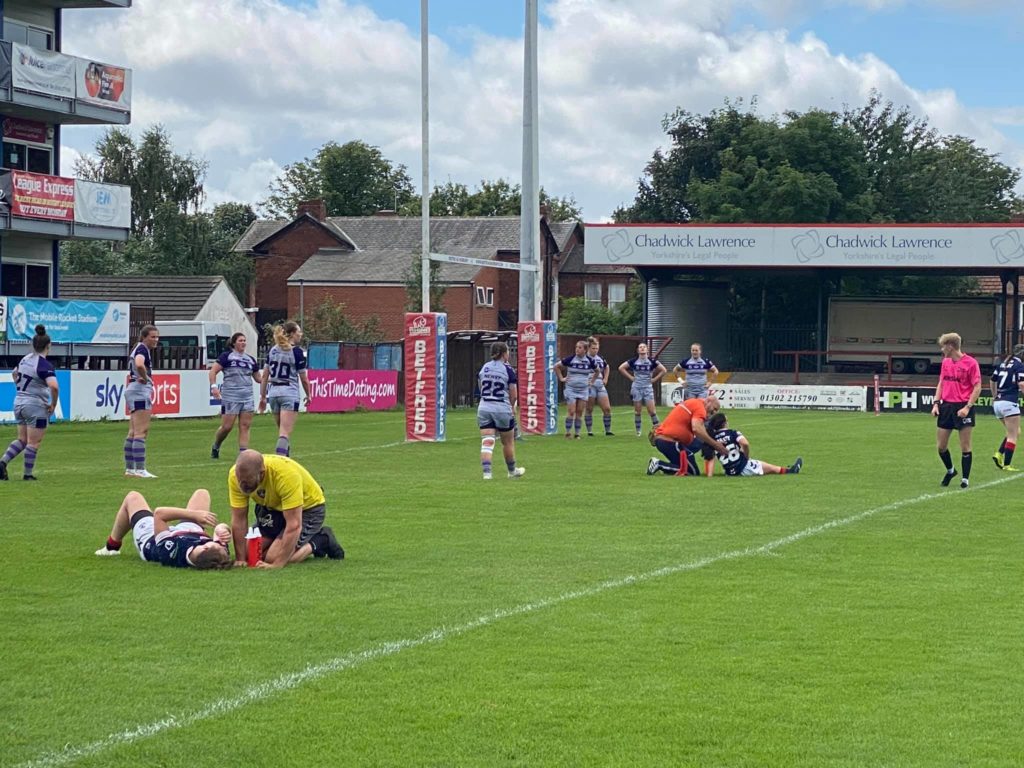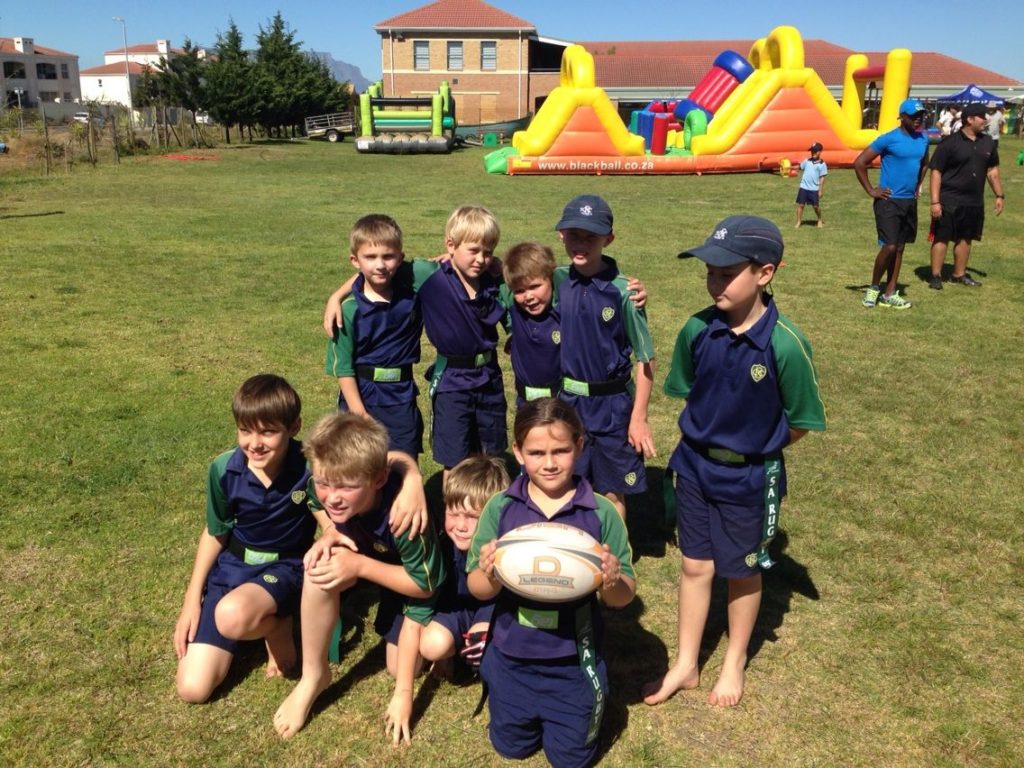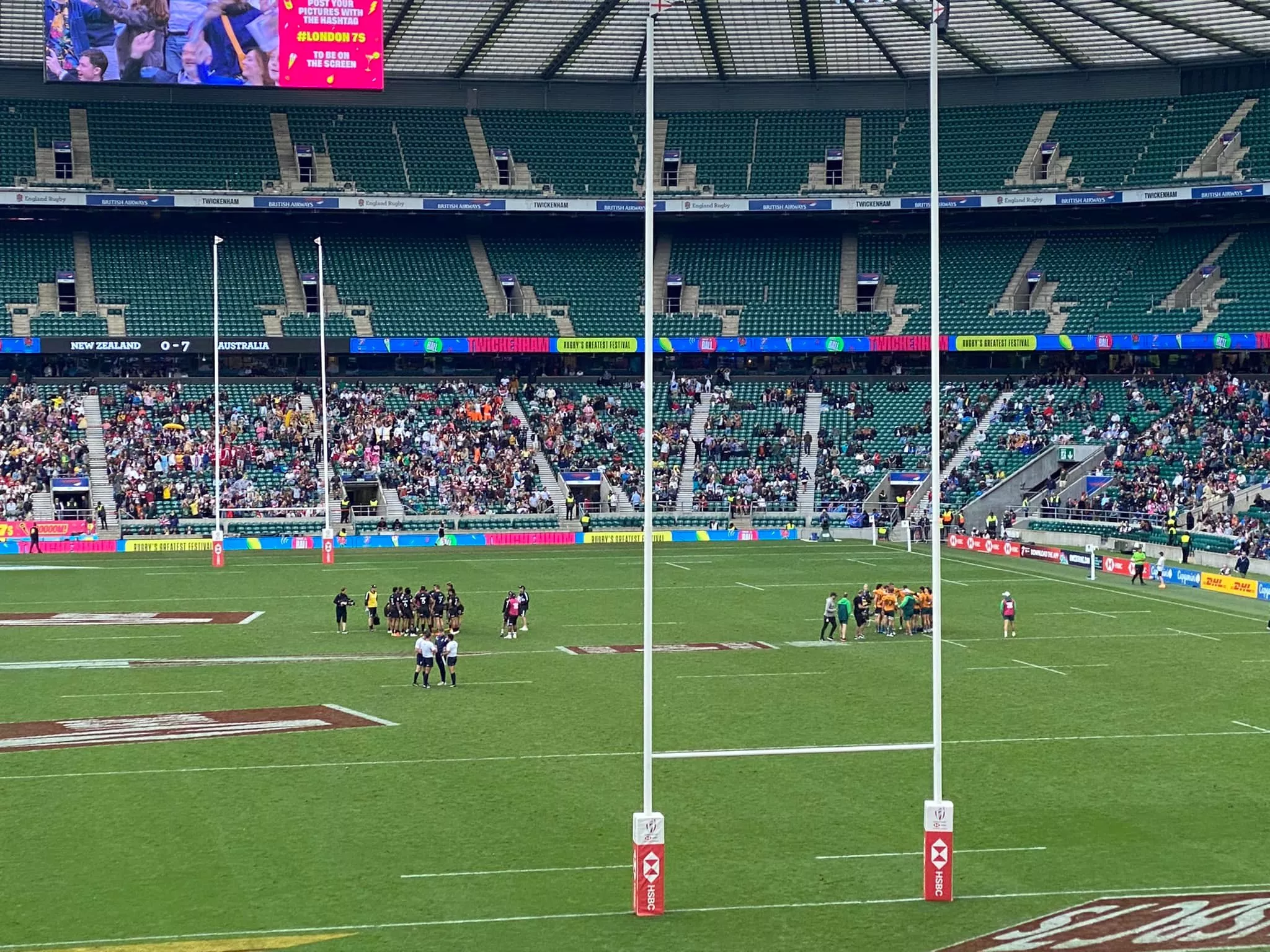Women’s rugby is a game imperilled – Efforts to grow the game continue to be frustrated by the obstructionist attitudes of gatekeepers and lack of funding.
There are two codes of Rugby – Rugby Union predominately played in the South of England and Rugby League, the M62 Corridor.
Rugby Union is dominated by South Africa, Australia, New Zealand, France, England, Scotland, Wales and Ireland. Whereby Rugby League is Australia, England.
One thing both codes have in common is underfunding and suggestions that rugby authorities were talking right about creating an enabling environment for women’s game, only to walk left and stonewall much-needed reforms.
While the hierarchy are embroiled in power plays you have to take a moment and acknowledge academies and foundations whom perform miracles with limited budgets and resources.
Women’s Super League

The new national pyramid for the women’s game has been revealed, giving clubs in the South and Wales the chance to reach the prestigious Women’s Super League.
It comes as part of the ongoing strategy to grow the women’s game, which continues in earnest following the Women’s World Cup at the end of last year.
However, one thing that is overlooked, players are not paid like their counterparts in the Men’s Super League. Rumours have surfaced that one or two of the top teams may see some form payment.
What is needed? Hopefully broadcasters and streaming services take the sport as serious as football and Tennis and help promote the game.
The Welsh Women’s Rugby Union game in turmoil
Damning reports emerged recently of, among other problems, a toxic culture of sexism within the Welsh Rugby Union.
The WRU is not doing itself any favours by ignoring calls to publish the findings of a review it commissioned into women’s rugby in 2021, which refusal is taken by many interested observers as confirmation of the rot and magnitude of the problems bedevilling the women’s game in Wales.
They would readily share the contents of the report if they had nothing to hide, wouldn’t they?
The reported problems within the Welsh game are symptomatic of a broader malaise within the women’s game, some would say.
Panacea for the malaise?
Former player and now MP Tonia Antoniazzi, as reported by the TV programme BBC Wales Investigates, wrote to the game’s patron, the Prince of Wales, imploring him to call a meeting to “create a better future for women and girls in rugby in Wales.”
Antoniazzi might as well have been speaking on behalf of all women and girls considering rugby as a professional career or sporting pastime. They face the same prohibitive conditions.
As things stand, the women’s game must still clear a series of hurdles before it can get to a level where it can even remotely begin to approximate parity with the men’s game, or even women’s tennis and football, for example. And that’s the objective reality of women’s rugby in general, not just the game in Wales, the gains of the last few years notwithstanding.
The fact that the leading European lights in women’s rugby, France and England, only started offering players professional contracts as recently as 2019 throws the challenges the women’s game faces into sharp relief.
Otherwise, the majority of women plying their trade at the highest level have day jobs.
It’s a damning indictment of a sport whose World Cup final last year attracted a sell-out crowd of 40,000, shattering the myth that women’s rugby is not a spectator sport and obliterating the argument that rugby is a man’s game.
At least there appears to be consensus among stakeholders that the game must move with the times and embrace all who want to be part of it regardless of race, gender or sexual orientation.
It’s encouraging to see the Welsh Rugby Players Association (WRPA) throwing it’s weight behind calls for the WRU to sanction the culprits and purge itself of individuals bringing the game into disrepute.
Last week the WRPA, in a letter to the WRU, reminded those entrusted with the running of the game of their mandate and responsibilities.
“As stakeholders in Welsh rugby, we all have a responsibility to actively combat any form of intolerance and discrimination – including misogyny, sexism, racism and homophobia – setting an example for the wider community to which our organisations contribute. This is something that begins internally,” reads the letter.
The players’ representative group also railed against a culture of impunity – administrators turning a blind eye to acts of maleficence, effectively aiding and abetting discrimination and intolerance within rugby structures.
“Otherwise, discriminatory behaviours, with a lack of condemnation and consequences, create an environment that discourages people from being part of our game, including but not limited to women and those from marginalised groups,” the WRPA added.
The call for rugby authorities to introspect is long overdue. The clear and present threats to the development of the women’s game must be tackled and neutralised with extreme prejudice.
Look at tennis and football
Bedevilled by man-made problems, women’s rugby could be forgiven for casting an envious eye at strides made by football or tennis counterparts, for example, in their respective quests for gender equality, inclusivity and pay parity. Should women’s rugby demand the same ‘concessions’ today?
An argument could be made that women’s football and tennis have paid their dues. The trajectories of their struggles for gender equality tell stories of years of frustration. The gains were hard-fought, merited and won on the back of the demonstrable appeal of both games as spectator sports with growing participation and audiences, both on TV and in the stadiums.
For football, although significant gains have been recorded over the years, the struggle continues. The women’s game continues to battle the scourge of sexism perpetrated by men who see female footballers as nothing more than objects to be ogled.
Women’s rugby will do well to glean useful lessons, but maybe not necessarily with a view to copying tennis and football’s developmental paths as blueprints.
Future outlook for women’s rugby game
The forecast is that the 2025 World Cup final in England will be watched by a record 82 000 spectators, double the crowd at last year’s final in New Zealand. The tournament is also expected to give the UK economy a hefty shot in the arm.
However, it’s what happens in the three-year intervening period that should exercise the minds of all rugby lovers.
It remains to be seen what positive spinoffs the women’s game will rack in from the legacy of last year’s rescheduled World Cup, whether the euphoria of the tournament will translate into a catalyst for positive change and tangible gains for women’s rugby.
On the back of the unqualified success of the 2021 World Cup, ideally we would witness a stampede, businesses offering sponsorship deals to women’s rugby clubs and players alike. And advertisers coming to the party too.
There is also no doubt that the women’s game suffers from a desperate lack of exposure. There is hardly regular TV coverage of women’s rugby at the minute, especially at league level, making it difficult for the game’s evangelists to take the gospel to the four corners of the world.
Hopefully viewership figures from the World Cup will convince broadcasters to give the women’s game a fair crack of the whip.
Is the money any good?
Can the girl child have a financially rewarding career in rugby and live off the earnings?
In Rugby Union, the elite nationally contracted players in the UK earn up to £33,000 per annum. It’s a fraction of the salaries their male counterparts command.
However, spare a thought then for the average club player and those hopefuls in the amateur ranks who only earn modest retainers and match fees, if at all.
Of course players can augment their earnings with income from sponsorship deals and endorsements as brand ambassadors. But to be of value to brand owners the players must be of a certain calibre and profile in the hierarchy of the game. Brands want to be associated with winners and recognisable personalities.
Owners will only hitch their wagons to household names or rising stars who will give their brands some traction. At the moment only a handful of players fall into this category.
The New Zealand blueprint of women’s rugby?
Perhaps other rugby nations could learn from New Zealand. It is no coincidence or by some fluke that New Zealand has distinguished itself as the dominant force in women’s international rugby.
The Black Ferns’ World Cup record – winners of six out of the nine titles on offer in the competition’s 36-year history – actually eclipses their male counterparts’ record. That says a lot about the state of New Zealand women’s rugby, especially considering the All Blacks’ credentials are not too shabby either.
New Zealand share the record for most World Cup titles with South Africa in the men’s game, with the southern hemisphere rivals having won three titles each. But notice the contrast in the international statures of the women’s teams from the two countries. While the Black Ferns are serial winners and world beaters the Springboks Women are languishing in mediocrity.
Nothing illustrates the developmental schism between the men and women’s game in South Africa better than the contrasting fortunes of the two national teams on the international stage.
The Springboks are the reigning World champions and one of the superpowers of the men’s game. By contrast, their female counterparts have only featured at the World Cup three times and sit woefully off the pace in the world rankings.
My daughter started her passion for Rugby at school in Cape Town, CBC St John’s, so why is the women’s game lagging so far behind in a rugby-mad country?

A paradigm shift in Womens’ Rugby ?
In 2019, in a bid to raise the profile of women’s rugby, and as a step towards parity with the men’s game, World Rugby removed the gendered distinction between women and men’s tournaments by marketing both under the banner of the “Rugby World Cup.”
It’s a commendable gesture, a significant paradigm shift, but not nearly enough. It will take a lot more than event rebranding to effect a cultural and attitudinal change.
A lot more still needs to be done to create a conducive environment for the women’s game to flourish but let’s hope one day girls will be able to watch the Six Nations or World Cup and think that could be a career choice for me.






